Contents
- Preface
- About the Illustrator
- About the Writer
- About the Translators
- The 100 Emperors
- Yan Di
- Huang Di
- Yao
- Shun
- Yu
- Qi of the Xia Dynasty
- Jie of the Xia Dynasty
- Tang of the Shang Dynasty
- Pan Geng of the Shang Dynasty
- Zhou of the Shang Dynasty
- King Wen of the Zhou Dynasty, Ji Chang
- King Wu of the Zhou Dynasty, Ji Fa
- King You of the Zhou Dynasty, Ji Gongnie
- King Ping of the Zhou Dynasty, Ji Yijiu
- Lord Zhuang Gong of Zheng, Ji Wusheng
- Lord Huan Gong of Qi, Jiang Xiaobai
- Lord Mu Gong of Qin, Ying Renhao
- Lord Xiang Gong of Song, Zi Zifu
- Lord Wen Gong of Jin, Ji Chong’er
- King Zhuang Wang of Chu, Mi Lü
- King of Wu, Helii
- King of Yue, Goujian
- Lord Wen Hou of Wei, Wei Si
- King Huai Wang of Chu, Mi Huai
- King Wuling Wang of Zhao, Zhao Yong
- Lord Xiao Gong of Qin, Ying Quliang
- Emperor Shi Huang of the Qin Dynasty, Ying Zheng
- The Overlord of Western Chu, Xiang Yu
- Emperor Gao Zu of the Western Han Dynasty, Liu Bang
- Emperor Wen Di of the Western Han Dynasty, Liu Heng
- Emperor Jing Di of the Western Han Dynasty, Liu Qi
- Emperor Wu Di of the Western Han Dynasty, Liu Che
- Emperor Ai Di of the Western Han Dynasty, Liu Xin
- The Emperor of the Xin Dynasty, Wang Mang
- Emperor Guang Wu of the Eastern Han Dynasty, Liu Xiu
- Emperor Ling Di of the Eastern Han Dynasty, Liu Hong
- Emperor Wu Di of Wei, Cao Cao
- Emperor Zhaolie of Han, Liu Bei
- The Great Emperor of Wu, Sun Quan
- Emperor Wu Di of the Jin Dynasty, Sima Yan
- Emperor Hui Di of the Tin Dynasty, Sima Zhong
- Emperor Min Di of the Jin Dynasty, Sima Ye
- Emperor Yuan Di of the Jin Dynasty, Sima Rui
- King of the Kingdom of Han, Liu Yuan
- King of Zhao, Shi Le
- King of the Former Qin, Fu Jian
- Emperor Wu Di of Song, Liu Yu
- Emperor Gao Di of Qi, Xiao Daocheng
- Emperor Wu Di of Liang, Xiao Yan
- Emperor Wu Di of Chen, Chen Baxian
- Emperor Dao Wu of the Northern Wei Dynasty, Tuoba Gui
- Emperor Xiao Wen of the Northern Wei Dynasty, Tuoba Hong
- Emperor Wen Xuan of the Northern Qi Dynasty, Gao Yang
- Emperor Wu Di of the Northern Zhou Dynasty, Yuwen Yong
- Emperor Wen Di of the Sui Dynasty, Yang Jian
- Emperor Yang Di of the Sui Dynasty, Yang Guang
- Emperor Gao Zu of the Tang Dynasty, Li Yuan
- Emperor Tai Zong of the Tang Dynasty, Li Shimin
- Empress Wu Zetian
- Emperor Xuan Zong of the Tang Dynasty, Li Longji
- Emperor Shun Zong of the Tang Dynasty, Li Song
- Emperor Xian Zong of the Tang Dynasty, Li Chun
- Emperor Wen Zong of the Tang Dynasty, Li Ang
- Emperor Tai Zu of the Later Liang Dynasty, Zhu Wen
- Ming Zong of the Later Tang Dynasty, Li Siyuan
- Emperor Gao Zu of the Later Jin Dynasty, Shi Jingtang
- Emperor Gao Zu of the Later Han Dynasty, Liu Zhiyuan
- Emperor Shi Zong of the Later Zhou Dynasty, Chai Rong
- The Last Ruler of the Southern Tang Dynasty, Li Yu
- Emperor Tai Zu of the Liao Dynasty, Yelii Abaoji
- Emperor Tai Zong of the Liao Dynasty, Yelii Deguang
- Emperor Tai Zu of the Song Dynasty, Zhao Kuangyin
- Emperor Zhen Zong of the Song Dynasty, Zhao Heng
- Emperor Shen Zong of the Song Dynasty, Zhao Xu
- Emperor Hui Zong of the Song Dynasty, Zhao Tie
- Emperor Qin Zong of the Song Dynasty, Zhao Huan
- Emperor Gao Zong of the Southern Song Dynasty, Zhao Gou
- Emperor Jing Zong of the Western Xia Dynasty, Li Yuanhao
- Emperor Tai Zu of the Jin Dynasty, Wanyan Aguda
- Emperor Shi Zong of the Jin Dynasty, Wanyan Yong
- Emperor Tai Zu of the Yuan Dynasty, Tiemuzhen
- Emperor Shi Zu of the Yuan Dynasty, Kublai Khan
- Emperor Tai Zu of the Ming Dynasty, Zhu Yuanzhang
- Emperor Cheng Zu of the Ming Dynasty, Zhu Di
- Emperor Ying Zong of the Ming Dynasty, Zhu Qizhen
- Emperor Shi Zong of the Ming Dynasty, Zhu Houcong
- Emperor Shen Zong of the Ming Dynasty, Zhu Yijun
- Emperor Si Zong of the Ming Dynasty, Zhu Youjian
- Emperor Tai Zu of the Qing Dynasty, Nurhachi
- Emperor Tai Zong of the Qing Dynasty, Huangtaiji
- Emperor Shi Zu of the Qing Dynasty, Fulin
- Emperor Sheng Zu of the Qing Dynasty, Xuanye
- Emperor Shi Zong of the Qing Dynasty, Yinzhen
- Emperor Gao Zong of the Qing Dynasty, Hongli
- Emperor Ren Zong of the Qing Dynasty, Aixinjueluo Yongyan
- Emperor Xuan Zong of the Qing Dynasty, Minning
- Emperor Wen Zong of the Qing Dynasty, Yizhu
- Emperor De Zong of the Qing Dynasty, Zaitian
- Empress Dowager Ci Xi, Yehenalashi
- The Last Emperor of the Qing Dynasty, Puyi
- Other data
Preface
This is an arduous project of art, grand and exquisite, majestic and fine, stately and romantic. The drawings are thought-provoking and of high ornamental value, being as exquisite as ivory carving. Instead of relying on beautiful colours, the drawings have gained their appeal by means of rich imagination, consummate skill, as well as the magnificent style and strength acquired through the meticulously-drawn lines.
This is also a vivid volume of dynastic history depicted in fine lines. Here the figures are kings and emperors. The events they experienced in their times, and the joys and sorrows of the common people cannot be seen directly in the drawings, yet we can faintly perceive the changes and events over the 5,000 years of Chinese history, and the glorious and arduous course our nation has gone through from the 100 portraits of different appearances and airs and from the background with profound connotations.
History is, after all, decided by the people. However, the roles played by the monarchs of each dynasty, either positive or negative, are also an important factor. Otherwise, why should people today still take delight in talking about the “Order and Prosperity of the Zhenguan Period” under the reign of Emperor Tai Zong of the Tang Dynasty and the “Heyday under Emperors Kang Xi and Qian Long of the Qing Dynasty”? It is only natural for people to admire wise and just emperors and condemn tyrants. No monarch can escape the strict and impartial judgement of history, and each of them is either admired or criticized by later generations. (And some of them may be both praised and criticized.) Since ancient times, the common people have had distinct love or hatred towards the all-powerful monarchs since what the latter did was closely related with the weal and woe of the former. The portraits in this collection are no doubt imbued with the artist’s mixed feelings towards the wise monarchs and the wicked tyrants. It is only with painstaking efforts that the artist has succeeded in embodying his historical knowledge and feeling in the countless silk-like fine lines. It is no doubt impossible to condense the 5,000-year-long Chinese history in the images of 100 kings and emperors. However, the artist has on the whole succeeded in reflecting in the portraits his basic understanding of the immense time and space and giving expression to his passion arising therefrom. While admitting his general success, I cannot help thinking why he has taken such great pains to undertake this arduous project voluntarily.
I have never asked Lu Yanguang such a question and can only make some supposition. Since ancient times, the common people have always tried to trace the cause of their fate to the supreme rulers either to learn a lesson from the tragic history or to felicitate themselves on the order and prosperity of their times. Therein are embodied their grievances and indignation as well as their memory and gratitude. In case of grievances and indignation, they would condemn tyrants like Jie of the Xia Dynasty and Zhou of the Shang Dynasty; and in case of memory and gratitude, they would admire wise and benevolent monarchs like Yao and Shun. At each turning point in history, people tend to make associations from the bygone great figures or mean ones, which reflects a very natural social psychology. That is why I am of the opinion that the artistic works of historical theme in this collection are in a sense the product of the current social psychology. Whether aware of it or not, Lu Yanguang has offered these significant works in conformity with the sentiments of millions of people.
Being neither a historian nor an artist, it is indeed difficult for me to write a preface for this collection of portraits. I have been willing to do it as I think his efforts are worthy of respect and admiration. We have before us masterpieces by an earnest and honest artist loyal to both life and art who has obviously transcended his past and has shown great potential.
About the Illustrator
Lu Yanguang was born in Kaiping, Guangdong Province in 1948. He is presently director of Guangzhou Art Gallery, vice-chairman of Guangzhou Artists’ Association and chief editor of Guangzhou Art Studies. His published works since 1985 include Lu Yanguang’s Album of Illustrations, Selected New Works of Lu Yanguang’s Illustrations, Album of Lingnan Scenery and Legends, 100 Chinese Women, 100 Chinese Emperors, 100 Chinese Gods, 100 Chinese Scholars and 100 Chinese Monks.
A renowned artist, Lu Yanguang started his career by drawing illustrations and cartoons. Instead of the traditional Chinese style of brush painting, each character in this collection is a combination of the old – the dynastic eras of ancient China, and the new – Lu Yanguang’s refreshingly artistic technique of xiuxiang hua (portraits in decorative style). His illustrations are characterized by a strong sense of speed and rhythm.
About the Writer
Born in 1944 in Guangzhou, Wu Luring works as an editor for the Yang Cheng Wan Bao in Guangzhou. He is also the writer for the Chinese edition of 100 Chinese Gods.
About the Translators
Professor Wang Xuewen was born in Hebei Province, China, in 1944. He is professor of English and Dean of the School of International Studies of the University of International Business & Economics, Beijing. He has translated many books and short stories, including All Creatures Great and Small, James and the Giant Peach and Moby Dick.
Also an author, he has written several textbooks such as Business Oral Translation, Practical Written Communication, and International Trade English.
An experienced tutor, he has been a mentor to many MA postgraduates majoring in translation theory and practice. Wang Yanxi was born in Hubei Province, China, in 1964. She earned her BA in Hubei University and her MA in the University of International Business & Economics, majoring in translation theory and practice. Her thesis On Poem Translation won favourable comments from experts. She has translated several short stories and articles.
Both of them translated 100 Chinese Gods, an earlier volume in this series, which won the Silver Prize in the First APPA awards for Fully Translated or Copublished Books organized by the Asian Pacific Publishers Association (APPA) in Tokyo, February 1995.
The 100 Emperors
Yan Di
Huang Di
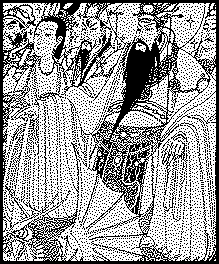
Huang Di, or the Yellow Emperor, is referred to as the “Originator of the Chinese Culture”, and all people of the Chinese race regard themselves as descendants of Yan Di and Huang Di.
With the original surname of Gongsun (later changed to Ji) and another name Youxiong Shi, Huang Di was also known as Xuanyuan Shi as he lived at the Xuanyuan Hill. A clan leader towards the end of China’s primitive society, Huang Di was the full brother of Yan Di with whom he shared the country. He formed an alliance with Yan Di in later years against the invasion of Chiyou, the chieftain of the Jiuli Tribe. A decisive battle was fought at Zhuolu in the northwest of the present Hebei Province. Legend goes that at the beginning of the battle, Chiyou sneezed out a thick fog all over the place which lasted three days, and the soldiers of Huang Di could not tell their directions. Fortunately Huang Di led his men out of the fog by the “compass chariot” he had invented and won complete victory.
The alliance of Huang Di and Yan Di split after Chiyou was defeated because, it was said, Yan Di intended to infringe upon the various tribes and seize the leading position of the alliance while the chieftains of the tribes preferred to obey Huang Di. As a result the two leaders fought at Banquan. After three fierce battles, Huang Di won victory and was made the “Son of Heaven” by the tribe chieftains.
Strict and impartial, Huang Di was able to get rid of the evil for the people. It was said that Gu, son of the God of Mount Zhongshan named Zhulong, murdered another god at Mount Kunlun in collaboration with a deity called Qinpi. The Yellow Emperor was indignant at their atrocity and immediately had them killed.
The Yellow Emperor was a highly gifted “Son of Heaven”. Legend goes that he was the inventor of many things such as making clothes, manufacturing boats and vehicles, building houses and palaces, etc. He also had his court officials Lun Ling make musical instruments, Da Nao compile the Heavenly Stems and the Earthly Branches*, and Cang Jie invent the Chinese characters. The country was in good order and prosperity and the people lived a happy life.
There were indeed quite a number of wars at the time, which however, broke the narrow limits between the different clans and promote (their merging. The ancient Huaxia nationality was thus gradually formed, being the predecessor of the Han nationality to which the overwhelming majority of the Chinese people belong.
It is said that Yao, Shun and the monarchs of the Xia, Shang and Zhou dynasties were all descendants of the Yellow Emperor. He was thus regarded as the first ancestor of the Chinese nation and to him was attributed the creation of all Chinese cultural institutions.
* The 10 Heavenly Stems and 12 Earthly Branches are used in combination to designate years, months, days and hours.
Yao
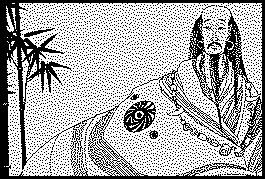
The first of the three successive sage rulers at the end of the Chinese primitive society, Yao was also known as Taotangshi and Fangrun, and was often referred to in history books as Tang Yao. He was said to be the son of Diku and was five generations away from the Yellow Emperor.
After becoming the “Son of Heaven”, Yao named his country Tang with Pingyang (present Linfen County, Shanxi Province) as the capital. He led a frugal life, living in a thatched house, eating coarse rice and drinking wild-herb soup. He put on a deer skin in winter and never made new clothes until his old clothes were worn out. Despite living in such hard conditions, he showed great concern for the welfare of the people. He said that he would be the one to blame if there was a single person suffering from cold and hunger or committing a crime.
Yao was quite democratic. At that time the supreme power of the tribe alliance rested with the Committee of Tribal Chiefs. Once the Committee recommended Gun to take charge of flood control. Yao complied with the decision though he did not agree with the choice.
Following Yao’s example, his officials were all devoted to their jobs. Legend goes that his Chief Judge Gao Yao was sagacious and impartial and raised a single-horned divine goat. In cases of disputes and quarrels, the goat would attack the person in the wrong with its horn. Thus the people lived a peaceful and happy life and loved Yao as the sun and the moon.
It was said that Yao had ten sons. But his eldest son Danzhu was far from a qualified successor. As a result, Yao decided to pass on the throne to Shun and meanwhile ordered to have his eldest son banished to the south as an ordinary duke. This decision angered the Sanmiao Tribe in the Central Plain of China, which rose against him. Yao, however, would not change his political decision because of that and sent an army to suppress the revolt instead. The insurgent troops were defeated and their chiefs captured and killed.
Yao has been widely acknowledged as a model monarch in Chinese history. According to Records of Yao, people were deeply grieved at the death of Yao as if they had lost their own parents.
Shun
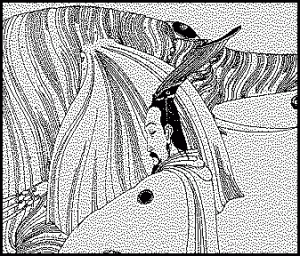
The second of the three successive sage rulers at the end of the Chinese primitive society, Shun was also known as Youyushi and Chonghua, and was often referred to in history as Yushun.
He was born in Zhufeng (the present Zhucheng County of Shandong Province). It was said that his mother died not long after he was born. Unable to put up with the maltreatment of his father and stepmother, he fled to the foot of Lishan Mountain near the river Guishui. There he opened up the wasteland and even trained an elephant to help him with farming.
Shun did his best to help others with farming, fishing and pottery making. As a result people kept coming to his place reclaiming the land, and before long, the place became a busy village.
As his son Dan Zhu was worthless, Yao accepted the recommendation of the Committee of Tribe Chiefs and chose Shun as his successor. He put Shun to the test before passing on the throne to him. He had Shun put in the depth of a large forest just before a thunderstorm to see how he would get out of it. It turned out that Shun resourcefully kept away from the wolves, tigers and leopards and got home safe and sound.
The name of Shun’s kingdom was Yu. He did a lot of good things for the people during the decades of his reign. As early as in the time of Yao, there had been what people called the “Four Evils” that is, Gun, Gonggong, Huandou, and the riots of Sanmiao. Soon after succeeding to the crown, Shun eliminated the Evils and banished them to the remote border areas.
Shun did farming and fishing himself and he was also fond of playing qin, a kind of stringed musical instrument. When the former monarch Yao married his two daughters to Shun, he also gave him as present a five-stringed qin, which Shun would play in leisure while singing the song South Wind composed by himself:
Cool wind from the south Clears away people’s worry; Timely wind from the south Increases people’s wealth.
It can be seen from the song how Shun loved his people.
When Shun became old, he passed on the throne to Yu who had made great contributions in controlling the flood, instead of his son Shangjun. It was said that he made a tour to the south in spite of his old age and weakness. Unfortunately he died in Cangwu on his way. People said that his remains were put in a pottery coffin and buried in the south of Jiuyi Mountain in Cangwu.
Yu
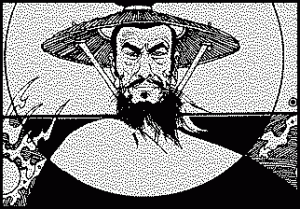
The third of the three successive sage rulers at the end of the Chinese primitive society, Yu has been known as Great Yu, the water controller. He is also referred to as Xia Yu or Rong Yu, and was chosen as successor to Shun for his contributions in controlling the flood.
People say that the Yellow River was in flood during the reign of Shun, inundating the fields and washing away the houses. People unanimously recommended Yu, the son of Gun, to take charge of river harnessing. Having taken up the job without hesitation, Yu went about the country with tools in hand and food in haversack surveying the rivers and mountains. He changed the former practice of the different tribes in controlling the flood separately and made a unified plan dividing the country into a number of regions to facilitate the work. For that purpose, he scraped off the bark of the big trees on the borderline to carve marks on. Drawing a lesson from the failure of his father who had for nine years tried to control the flood by “damming”, he boldly adopted the practice of “dredging”. He first dredged the large rivers to channel the water into the sea before dredging the streams and ditches to channel the water into large rivers. In the 13 years of his hard work, he passed his own home three times without stopping to go in. In the end he got the flood harnessed.
After succeeding to the throne, Yu cast nine huge tripods with the copper contributed by officials from various localities on which were caned pictures of all kinds of poisonous reptiles and harmful beasts as well as ghosts and spirits so that people could recognize them and protect themselves from them. The tripods were placed outside the palace gate for display, and after that “Yu’s Tripods” became synonymous with “discerning the evil”.
Yu’s power was greatly strengthened for his meritorious deeds in harnessing the flood and for the victory against the Sanmiao Tribe achieved under his leadership. When he convened the meeting of state chiefs at Tushan Mountain, there were as many as ten thousand participants and those who were late were put to death. By that time Yu had been a great ruler with authority and power known far and wide. When Yu was old, the Committee of Tribe Chiefs unanimously elected Gao Yao to be his successor. It was believed that Gao Yao was the first to make criminal laws in Chinese history. Unfortunately, he died prematurely before Yu, and people elected Boyi in his place. After Yu’s death, however, his son immediately had the chosen successor killed and seized the supreme power. From then on, the system of passing the crown to a chosen person was replaced by inheritance.
Qi of the Xia Dynasty
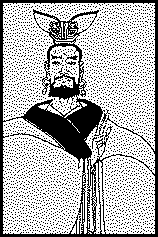
Qi was the first king of the Xia Dynasty (21st century to 16th century BC), the first dynasty of the Chinese slave society. His surname was Si, and he was the son of Great Yu.
Qi was able to replace the system of passing the crown to a chosen successor with that of inheritance as history had progressed to the stage where private ownership became predominant.
Qi’s succession to the throne met with opposition from the conservative forces. A tribe chief You Hu Shi carrying the same surname as Xia started an armed rebellion and fought against the King’s Expedition Army at Gan (the present Huxian County of Shanxi Province). It turned out that You Hu Shi had a disastrous defeat and was reduced to a slave. The suppression of the opposition forces consolidated Qi’s position. He twice feasted with chiefs of the subjugated tribes with the purpose of exacting tributes from among them. Thus the primitive tribe alliance was replaced by a power institution oppressing and exploiting the people and the basic form of state power came into being.
Qi was a wilful outrageous ruler. He often went on extravagant feasts in the fields in the company of his favourite officials. In the palace he kept many musicians and girls to perform songs and dances specially for him. Later, he even used the nine copper tripods made by his father for cooking, which met with universal opposition from the people.
His younger brother Wu Guan took the lead in an armed rebellion to seize the throne, which sapped Qi’s rule though he was suppressed in the end. After his death, his son Tai Kang who succeeded to the crown was equally dissipated and extravagant and made a mess of the country, which as a result was conquered by Hou Yi of the You Qiongshi Clan.
It was only after decades of twists and turns that Qi’s great-grandson Shao Kang regained the crown with the support of his clan. The event is referred to in history as the “Resurgence by Shao Kang”.
Jie of the Xia Dynasty

One of the notorious tyrants in Chinese history, Jie was the last king of the Xia Dynasty who reigned about 3,600 years ago.
Stalwart and dignified in appearance, Jie was exceptionally strong and powerful. He was said to be able to break hard horns with one hand, and straighten crooked metal hooks before twisting them together like twisting fibres into a string. He was even strong enough to fight a beast of prey bare-handed.
In order to tighten his control over the neighbouring states, Jie launched an expedition against Youshishi shortly after his accession to the throne. Unable to resist the attack, Youshishi offered a beautiful girl, Moxi, to the king who doted on the beauty and withdrew his troops. Jie spent all his time in company with his new lady and forced a large number of labourers to build a new palace for her in which were chambers and terraces decorated with jade, pillars made of bronze, corridors ornamented with ivory, and beds carved out of marble. He issued an order to pile up meat into a small hill and to fill in a pond with delicious wine on which there were even small boats. Here, “three thousand people could drink and eat to their heart’s content.”
His subjects detested him for his extravagance and tyranny, and no one wanted to serve him any more. A virtuous man named Yi Yin was bold enough to remind Jie at a banquet: “The state is going to perish if the monarch refuses to listen to advice.” To that Jie replied shamelessly: “I reigning the country am just like the sun shining in the sky. Will it be possible for the sun to perish?” Hearing these remarks, the people cursed, pointing at the sun: “You abominable sun! Why don’t you perish earlier? We would rather die together with you.”
Later Jie sent an expedition army under a general named Bian against the state of Minshan, whose ruler sent somebody to sue for peace by offering countless treasures and two beautiful girls. At that time, the virtuous Yi Yin who had fled Jie’s country and become a senior official in the state of Shang succeeded in getting in touch with Moxi who had lost favour with the King, and got to know a lot of secrets about the country under Jie’s rule. Seeing that the opportunity had come, Yi Yin together with Tang, the ruler of the state Shang, led a strong army towards the capital of Xia. After a fierce battle at Mingtiao (east of present Fengqiu of Henan Province), the Xia army was utterly defeated and Jie fled to Nanchao (southeast of present Shouxian County, Anhui Province) where he died later. Thus the Xia Dynasty was replaced by the Shang Dynasty led by Tang.
Tang of the Shang Dynasty
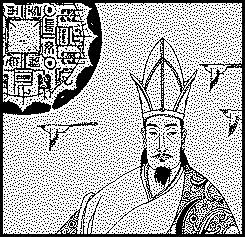
Tang was the founder of the Shang Dynasty, the second dynasty of the Chinese slave society. With the surname Zi and personal name Lu, he was also known in historical records as Tianyi, Chengtang or Wutang.
Shang had been a tribe to the east of Xia, with the swallow as its totem. The first ancestor of the tribe was Qi*, and Tang was his 14th generation descendant. By this time, Shang, with Bo (north of present Shangqui County, Henan Province) as its capital, had been a rising slave system state among the vassal states of Xia.
At that time, Tang was a kind and generous ruler. Once he went hunting in the suburbs and saw a man putting up nets in all the four directions to catch birds. He persuaded the man to remove the nets on three directions so as to save some birds from being caught. The other states saw Tang’s kindness and leniency in this and some of them broke away from Xia and became Shang’s vassal states.
Seeing Shang getting stronger, King Jie of the Xia Dynasty became worried. Following the scheme of a wicked official Zhao Liang, he summoned Tang to the capital on an excuse and imprisoned him at Xiatai (namely Diaotai). Yi Yin, a wise official, contrived to have him set free by bribing the king with treasures and beauties. Tang was thus determined to overthrow the Xia Dvnasty.
Following the plan made by Yi Yin, Tang sent troops to attack the three states allied with Xia before invading the suzerain. Yi Yin suggested: “Let’s see how Jie will react if we refuse to pay tribute to him.” The king of Xia became very angry and mobilized the army of his vassal state Jiuyi against Shang. Yi Yin then said to Tang: “Jie can still call on Jiuyi to send troops against us. Let’s refrain from attacking him for the time being.” They then apologized to Jie and paid tribute to him. However, when Tang again refused to pay tribute the next year, Jiuyi declined Jie’s call to send troops to help him. Seeing that Jie was no longer influential, Yi Yin assisted Tang to organize a military expedition against the Xia Dynasty.
Sitting on a chariot with the army flag and holding a large axe, Tang led his strong army towards the capital of Xia. The two armies met at Mingtiao where Tang declared Jie’s crimes to all his troops, who were greatly inspired and defeated the Xia army in only one battle. After the death of Jie, Tang founded the Shang Dynasty and became the king. This event is referred to in history as the “Chengtang Revolution”.
* This Qi is a different person from the first king of the Xia Dynasty.
Pan Geng of the Shang Dynasty
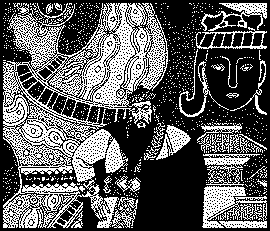
Pan Geng, the ninth generation descendant of Tang, was a king of the Shang Dynasty known for his success in moving the capital for the better development of his kingdom.
In the period from Zhongding to Yangjia, the Shang Dynasty was in a state of political chaos and decline with the brothers struggling against each other for the crown, the king bent on building palaces, and the corrupt nobles living in luxury. Pan Geng succeeded to the throne after the death of his elder brother Yangjia.
Seeing the country suffer from years of flood and the people flee their home places, the king intended to move the capital from Yan (modern Qufu of Shandong Province) to Yin (northwest of modern Anyang of Henan Province) so as to change the luxurious ways of the nobles in a new environment and relax the social contradictions of the declining kingdom. This proposal of his, however, met with the opposition of both the officials and the common people. For three times the king called them to the palace, lecturing on his proposal. First he explained to the officials why the capital should be moved. Then he said to the common people: “Your lives have been reserved by me from Heaven. If you fail to obey me, your ancestors will request my predecessors for severe punishment to befall you. Then I shall kill you all, leaving no descendants for you. In that case, you will not be able to go to the new capital even if you wish to. Let’s go to the new capital now. Follow me and I shall protect you and your families.”
Then again he called members of the ruling group and said: “I am now speaking to you from the bottom of my heart. Your ancestors made contributions to the kingdom. If you act according to my will, the common people will follow us, but if you do not, they will revolt.”
Through his repeated mobilizations, his officials and the common people agreed to move the capital. As the new capital was called Yin (modern Xiaotun Village, Anyang), the Dynasty was thereafter called Yin Shang. Pan Geng ordered to build houses with thatch in the new capital. The social order was stabilized as a result of the people’s burden being lightened. That paved the way for the development of the kingdom in the later stage of the Dynasty, and Pan Geng was thus regarded as a good king who had revived the Dynasty.
Zhou of the Shang Dynasty
King Wen of the Zhou Dynasty, Ji Chang
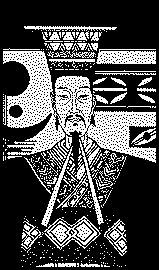
With the surname Ji and personal name Chang, King Wen of Zhou was from the place Bin (around the present Xunyi of Bin County, Shanxi Province). He laid the foundation for the Zhou Dynasty and was well known as one of the sage kings in ancient China.
When his father Ji Li was on the throne, Zhou was only a small dependency of Shang. Ji Li led the people of the Zhou Clan eastward along the Wei River and settled down in Zhouyuan to the south of the Qishan Mountain where they built up city walls and laid the basis for marching further east. After his father was put to death by the king of Shang, Ji Chang succeeded to the throne.
Harbouring the idea of avenging his father, Ji Chang was determined to make his state strong so as to overthrow the rule of the Shang. While sending troops to drive away the forces of the neighbouring nationalities, he made a point of straightening out the internal affairs. He was kind and generous to the people and set limits to taxes and levies. Wearing the clothes of the common people, he often went to the fields to supervise the peasants in their cultivation and reclamation, showing great concern for the life of the people, especially old widows and widowers. He issued decrees that when a person committed an offence, his innocent relatives were not to be punished. These policies formed a sharp contrast with the cruel rule of the Shang, and many people came from other states with their families and settled down in the state of Zhou.
To achieve the objective of overthrowing the Shang Dynasty, Ji Chang did everything possible to get talented people. He always treated people of insight, either versed in letters or martial arts, kindly and never neglected to have a cordial chat with them. As a result, qualified people kept coming to serve in his court.
The State of Zhou became a strong power in the west under Ji Chang’s wise administration, which alerted King Zhou of the Shang Dynasty. While making Ji Chang “Leader of the Western States”, he invited him to Zhaoge, the capital of Shang and had him imprisoned at Youli on a false charge. King Wen was not released until his officials offered beauties and treasures to King Zhou.
After returning to his state, Ji Chang accelerated the pace in his efforts to wipe out the Shang. He led an army across the Yellow River and fought to the central part of the Shang territory, occupying large areas which accounted for two thirds of the whole country. Unfortunately, he died just before launching the final attack, leaving his will to his successor to overthrow the Shang Dynasty without any hesitation. He was granted the posthumous title of King Wen after his son Ji Fa founded the Zhou Dynasty.
King Wu of the Zhou Dynasty, Ji Fa
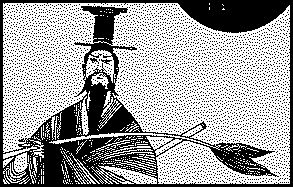
King Wu was the founder of the Western Zhou Dynasty, and he succeeded to the crown after the death of his father King Wen.
Determined to realize his father’s will to overthrow the Shang Dynasty, King Wu took the strategist Jiang Shang as his teacher and his younger brother Duke Dan as his major assistant in his efforts to found the Zhou Dynasty.
While Ji Fa was engaged in active preparation for the destruction of Shang, King Zhou of the Shang Dynasty was carrying out large scale wars against the states in the southeast. King Wu decided to take the opportunity to join forces with the minor states for a military manoeuvre so as to test his influence and military strength. It turned out many states responded to his call and led their forces to Mengjin to his assistance, which strengthened King Wu’s confidence to wipe out the Shang Dynasty. Nevertheless, they retreated in the end as the opportunity was not yet fully ripe for their efforts. This manoeuvre was referred to in history as “Joining Forces at Mengjin”.
In the spring of the fourth year after his accession to the throne, King Wu launched an unprecedented war against the Shang Dynasty. He personally led 300 military chariots, 3,000 valiants, and 45,000 armoured soldiers. And the troops of many states joined the expedition army which had a total of 4,000 chariots, not to mention other forces.
King Wu made a speech for battle mobilization in Muye in the suburbs of the Shang capital. He said: “King Zhou did all kinds of evil against morality and the will of Heaven. Abetted by his concubine, he only indulged in pleasure and practised tyranny over the people, abandoning all the credits and virtues of his ancestors. Acting for Heaven, we are now starting this punitive expedition against this tyrant. Brave men, get ready to charge at the enemy!”
After the mobilization, King Wu ordered his troops to march northward, and thus founded the Western Zhou Dynasty with Haojing (southwest of modern Xi’an of Shaanxi Province) as the capital.
After founding the new dynasty, King Wu created many vassal states in the country to be ruled by members and relatives of the royal family as well as meritorious officials and generals who were vested with hereditary titles and power and were also put under such obligations as making regular contributions to the king. That was referred to as the enfeoffment system.
In the second year after overthrowing the Shang Dynasty, King Wu broke down from overwork in the long years of military life and died in the capital of Haojing.
King You of the Zhou Dynasty, Ji Gongnie
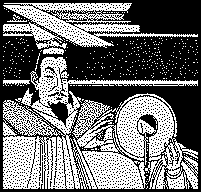
Being the last monarch of the Western Zhou Dynasty, King You was notorious for his indulgence in pleasure to the negligence of state affairs.
His father King Xuan (Ji Jing) succeeded to the throne when the state was in peril after the tyrannical reign of King Li. With a view to revitalizing the nation, King Xuan made efforts to “improve domestic affairs and resist foreign aggression” in the 47 years of his reign. This was referred to in history as the “Resurgence of King Xuan” which, however, was only superficial. The acute contradictions in the country formed the basis of the crises for the reign of King You.
In the second year after Ji Gongnie became king, the areas around the capital were stricken by a severe earthquake. “The Qishan Mountain collapsed, and three rivers were drained,” causing serious calamity with hundreds of miles of land deserted and countless common people suffering from hunger. The nomadic tribes in the northwest took the chance to invade the kingdom, pushing it onto the verge of collapse. All this, however, did not bring King You to his senses. Greedy and given to sensual pleasures, he trusted wicked officials and favoured flatterers to the negligence of state affairs.
He got a concubine named Bao Si who, though very beautiful, always assumed a serious look. In order to make her smile, King You went so far as to “tease the leaders of the vassal states with beacons” at the cost of the security of the country. He brought the concubine to the beacon tower on one of the fortresses and ordered to light the beacon. At the signal, other beacons were lighted one after another in succession. Heads of the nearby vassal states, as usual, took this as an alarm and immediately led their troops to the capital. Seeing neither any enemy nor any fighting, they retreated in low spirit. The beauty Bao Si could not help laughing at the amusing scene which made King You feel very much pleased.
King You had a son named Yi Jiu who fled to the State of Shen after his mother the queen was killed by the king for the sake of his concubine The marquis of the State of Shen was the queen’s father. In a rage at the news of his daughter’s tragic death, he allied himself with a western nomadic tribe Quanrong to attack King You. At the critical juncture, the king lighted the beacon for help. In view of their past experience of being fooled, no vassal states sent any reinforcements to the king. As a result, the concubine Bao Si was captured by the nomads and King You was killed at the foot of Lishan Mountain (to the southeast of the present Lintong of Shaanxi Province). That marked the end of the Western Zhou Dynasty and the beginning of the Spring and Autumn Period.
King Ping of the Zhou Dynasty, Ji Yijiu
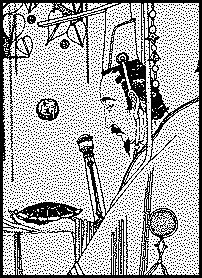
Ji Yijiu (?-720 BC) was the son of King You and the first king of the Eastern Zhou Dynasty.
He became king with the support of the Marquis of Shen and was known as King Ping. As the former capital Haojing became ruins in the war, the king moved the capital east to Luoyi (present Luoyang of Henan Province) in 770 BC, which marked the beginning of the Eastern Zhou Dynasty.
After moving east, the royal family lost about half of the former territory and population of the country. It had under its control only 500 to 600 square kilometres of land and King Ping was actually reduced to the status of a marquis. As Eastern Zhou was too weak to control the former vassal states, a period of turbulence began in Chinese history, that is, the Spring and Autumn Period. With the support of the states Zheng, Jin and Guo, King Ping managed to sustain his reign. However, he had lost the authority as a king.
Once the Lord of Guo, Jifu, came to Luoyang to have an audience with the king, and the two of them had a congenial talk. It occurred to King Ping that Lord Zhuang Gong of the State Zheng, though a minister of Zhou, had not served in the Zhou Court for a long time. So he mentioned his intention to put Lord Guo in his place for the administration of state affairs. Knowing Lord Zhuang Gong of Zheng was hard to deal with, Lord Guo declined the offer with various kinds of excuses. After learning this, Lord Zhuang Gong of Zheng hurried to the capital Luoyang and took the initiative to present his resignation. King Ping did not dare to offend him and was profuse in his apologies, explaining again and again that he had had no intention to remove the lord. To eliminate his misgivings, the king even offered to send his crown prince to the state of Zheng as a hostage. That was enough to show that the Zhou Dynasty existed only in name from the time of King Ping.
Lord Zhuang Gong of Zheng, Ji Wusheng
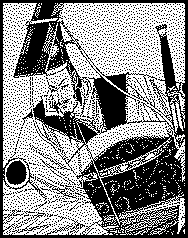
Lord Zhuang Gong of Zheng (757-701 BC), ruler of the State of Zheng in the Spring and Autumn Period, was from the east of what is today’s Huaxian County, Shaanxi Province and was the earliest powerful lord who challenged the authority of the king of the Zhou Dynasty.
His grandfather Lord Huang Gong was made minister of the Eastern Zhou for helping King Ping to suppress the invasion of the Xirong nomads. In addition, King Ping awarded a large area of land east of Luoyang to Huan Gong’s son Juetu who later became the ruler of the State of Zheng and was known as Wu Gong. Zhuang Gong was the elder of his two sons, who inherited his position in the state as well as his minister title in the Eastern Zhou.
His mother showed favour to her younger son Duan and secretly gave him support in his plot to replace his elder brother. Learning about the conspiracy, Zhuang Gong sent troops in ambush near the city Jing which had been granted to Duan, and captured the city at one stroke when Duan left it with his troops to seize the supreme power of the state. With his scheme falling through, Duan committed suicide for shame, and Zhuang Gong remained a dutiful son to his mother.
After Zhuang Gong came to power, the State of Zheng became more prosperous and powerful while the Zhou Dynasty went from bad to worse with the position of its king becoming weaker. With a view to curbing the influence of the rising vassal states, King Ping intended to begin his plan with removing Zhuang Gong from the position of minister of Zhou. For that the lord gave tit for tat. He immediately went to Luoyang to tender his resignation, putting the king in an embarrassing position. The two parties then reached an agreement under which Zhou’s crown prince Hu shall be sent to Zheng “to study state administration” in exchange for Zhuang Gong’s son who was to live in Luoyang. This was actually an exchange of hostages between the two sides, which, contrary to the will of King Ping, promoted the prestige of Zhuang Gong.
In 720 BC, King Ping died and his crown prince Hu also died of excessive sorrow. Hu’s son Ji Lin succeeded to the throne, known as King Huan of Zhou. Out of deep hatred for Zhuang Gong, he issued a decree to deprive him of his title as Zhou’s minister.
Learning of the news, many senior of ficials of Zheng favoured an immediate expedition against Zhou. Instead of following their advice, Zhuang Gong sent troops to two small states to plunder their grain just to test the response of the king. As expected, the weak king did not dare to condemn the plunder. Zhuang Gong then decided to have an audience with the king so as to draw in some small states against some others for the purpose of strengthening his position among the states.
Against his expectations, the king gave him a cold shoulder and deliberately offered him ten cartloads of grain by way of blaming him for his failure to pay tribute. Zhuang Gong felt that he had lost face and was worried that the rulers of the states on his way would laugh at him. It so happened that Lord Zhou Heijian gave him as present two cartloads of silk fabric. He then covered the ten grain carts with the silk fabric, trying to create an impression that the king had given him ten cartloads of silk. Sure enough, it spread out around the country that he was favoured by the king, which promoted his prestige even further.
In 712 BC, Zhuang Gong had a large flag made with the words “Punishing Offenders for Heaven” on it. He wiped out the State of Xu with the support of Qi, Lu and other states. Now the King of Zhou finally made up his mind to get rid of this black sheep. In 707 BC, the king personally led the troops of Chen, Cai and Wei in an expedition against Zheng, only to be defeated by the much stronger Zheng army. In the battle, even the king himself was wounded in the shoulder with an arrow shot by a Zheng general Zhu Dan. To avoid being accused of trying to kill the king, Zhuang Gong hypocritically sent people to the king the same night to ask for forgiveness. In 701 BC Zhuang Gong died of illness at the age of 56 before the realization of his ambition to gain hegemony among the states.
Lord Huan Gong of Qi, Jiang Xiaobai
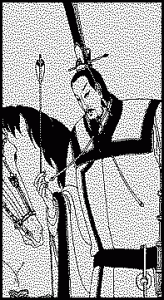
Lord Huan Gong of Qi (?-643 BC) was a ruler of the State of Qi, famous for being the first of the five lords that succeeded in gaining hegemony among the states.
The State of Qi had shown signs of great trouble under the rule of his cruel and dissipated father Lord Xiang Gong. Jiang Xiaobai fled to the State of Lu to avoid imminent disaster. Later Xiang Gong was killed and the officials invited him back to the capital to be his successor. He had intended to appoint Bao Shuya who had once saved his life to be prime minister. Bao Shuya, however, recommended an able man Guan Zhong who had once attempted to kill Huan Gong. Bao went to the State of Lu and contrived to get Guan Zhong back to Qi.
Removing all the previous grudges, Huan Gong appointed Guan Zhong prime minister and respected him as “Father Zhong”. Greatly moved, Guan Zhong served the state wholeheartedly. He carried out reforms of the old system for the development of production, levied taxes according to the quality of the land, put mining and salt production under official control, and issued strict orders to officials at all levels to recommend able people. Following the advice of Guan Zhong, Huan Gong acted under the slogan “Venerating the King and Resisting Foreign Aggression”. He defeated the Rong Di nomads, saved the State of Xing (the present Xingtai of Hebei Province) and the State of Wei (the present Qixian County of Henan Province), and pacified the internal strife in the royal family of Zhou. In 656 BC, he led the strong allied troops of eight states in an expedition against the southern state Chu and succeeded in curbing Chu’s expansion to the central areas of China.
The prestige of Huan Gong became higher and higher. He organized and led alliances of states nine times in his life, and was indeed much more influential than the King of Zhou. In 651 BC, he presided over an alliance meeting of most states at Kuiqui (modern Kaocheng of Henan Province), thus becoming the first lord that gained hegemony among the states. However, he grew complacent afterwards and the lords of the states became disappointed with him.
Huan Gong had five sons each of whom was plotting to gain accession to the lordship. Spotting the hidden crisis, Guan Zhong, on his deathbed in 645 BC, advised the lord to make Zhao the crown prince and to estrange himself from dubious characters. Unfortunately, Huan Gong did not follow his counsel. Wicked officials trusted by the lord ran wild after the death of the minister. That, coupled with the four sons conspiring to seize supreme power, threw the state in chaos.
Two years later Huan Gong was seriously ill and the treacherous officials confined him in a deserted place, passing off their own will as his order while refusing to give him any water to drink. It was only then that he regretted for having failed to listen to Guan Zhong, saying to himself, “How ashamed I would be to face Guan Zhong if the dead did have consciousness!” Thus the once all-powerful overlord declined for being complacent and left the human world in misery. After his death, strife broke out in the State of Qi which was severely weakened and lost its hegemonic position among the states.
Lord Mu Gong of Qin, Ying Renhao
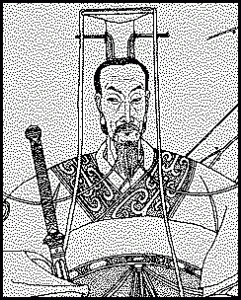
Lord Mu Gong of Qin (?-621 BC), ruler of the State of Qin, was from the southeast of what is present day’s Fengxiang County, Shanxi Province and was famous for being one of the five lords who had gained hegemony among the states in the Spring and Autumn Period of the Chinese history.
After succeeding to the lordship in 659 BC, he made a lot of efforts to carry out reforms of the politics of the State of Qin and promoted able and virtuous people. With his state becoming stronger and stronger, Lord Mu Gong was eager to compete with such states as Qi and Jin in the east and Chu in the south for hegemony in central China.
In 647 BC, the State of Jin suffered from a serious drought and borrowed grain from Qin. Some officials of Qin advised Mu Gong to take the opportunity to launch an expedition against Jin since the Lord of Jin, Yi Wu, had once offended Mu Gong of Qin. However, Qin’s senior officials Gongsun Zhi and Baili Xi favoured lending grain to Jin. Baili Xi said to Mu Gong, “Though the Lord of Jin offended you, the common people of Jin are not to blame.” After careful consideration, Mu Gong of Qin decided to lend grain to Jin. This was actually an important step taken by him to win popular support.
The next year Qin suffered from famine and tried to borrow grain from Jin. The latter not only refused the request but sent an expedition army against Qin. Having got the news, Qin struck the first blow and the two states fought a severe battle at Hunyuan (between the present Wanrong County and Hejin County of Shanxi Province). Taking advantage of their numbers and strength, the Jin troops surrounded the Qin army, and even Mu Gong himself was wounded. At this critical moment, 300 “wild men” came to their assistance. It turned out that they had once slaughtered Mu Gong’s horse for meat on the verge of starvation. And Mu Gong offered them wine instead of punishing them. So they had come today to repay his kindness. As a result, the Qin army defeated the Jin troops, extending the eastern border of the State of Qin to regions along the Yellow River.
In 628 BC, Qin despatched three generals for a surprise attack against rhe State of Zheng which was friendly with Jin. Learning that Zheng had been well prepared when they marched to Luoyang, the three generals withdrew their troops, only to fall into the ambush of Jin when they retreated to Xiaoshan Mountain (to the northwest of the present Luoning County, Henan Province) and were almost entirely destroyed. This was historically referred to as the “Battle of Xiaoshan”.
Realizing his own mistake, Lord Mu Gong of Qin personally went to the suburbs to meet the generals back from defeat and took all the blame on himself. Drawing a lesson from the defeat, the lord made more active efforts to prepare for war so as to take revenge on Jin for the ambush. In 624 BC, Qin launched a large-scale expedition against Jin, dealing the enemy a devastating blow at Wangguan (to the west of the present Wenxi County, Shanxi Province).
The same year, the king of the western state Rong sent You Yu as envoy to Qin. Seeing an able person in the envoy, Lord Mu Gong designed to sow discord between the king of Rong and his envoy. Finally, he succeeded in having You Yu surrender to Qin and help Qin to attack the State of Rong. Since then, the State of Qin had incorporated 12 smaller states, extending its territory by a thousand li* and gaining hegemony among the western states. Meanwhile the merging of the Qin people and the Rong tribes were accelerated.
Lord Mu Gong of Qin reigned for 39 years, being one of the five lords who had gained hegemony in the Spring and Autumn Period.
* One li = 0.5 kilometres.
Lord Xiang Gong of Song, Zi Zifu
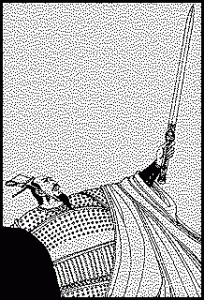
Lord Xiang Gong of Song (?-637 BC), a ruler of the State of Song in the Spring and Autumn Period, was from what is the border area of today’s Henan and Shandong Provinces. He was known as a pedantic advocator of humanity and virtue even in war.
Zi Zifu felt very uneasy when he was made crown prince by his father Lord Huan Gong of Song, and pleaded many times to put his brother Muyi in his place. However, his request met with the flat refusal of his brother. In 650 BC he succeeded to the lordship, appointing his brother Muyi premier in charge of the state affairs. Under their administration, the State of Song was run quite well at the time, and even Lord Huan Gong of Qi who had just gained hegemony among the states entrusted his crown prince Zhao in the care of Xiang Gong of Song.
When Lord Huan Gong of Qi died in 643 BC, a civil strife occurred in the state Qi as his four sons contended for the lordship, and the crown prince Zhao ran to the state Song for protection. The next year Lord Xiang Gong of Song in alliance with some other states defeated the troops under the command of the four Qi princes before putting Zhao on the throne (known as Lord Xiang Gong of Qi). Thus he stabilized the situation in the state Qi, and increased his popularity.
In 639 BC, Xiang Gong of Song intended to become the leader among the lords of states but met with the objection of a strong state Chu. He then invited the king of Chu to the meeting of sovereigns for the alliance so as to get Chu’s approval. In the autumn of that year, Xiang Gong left for the meeting in spite of the repeated efforts of his brother to dissuade him from going. As expected, he was put into custody by the troops of Chu in ambush at the place of the meeting Yu (to the northwest of the present Sui County, Henan Province). His brother Muyi hurried back to Song, gathering troops and strengthening the fortifications. The king of Chu sent an envoy to Song threatening, “We shall kill your lord if you do not surrender.” The officials of Song replied, “Thanks to the blessings of our ancestors, we have got a new lord.” The king of Chu could not do anything but release Lord Xiang Gong of Song.
The next year, the lord of the state Zheng personally went to the state Chu to pay respect to its king. Lord Xiang Gong regarded that as betraying him as the leader of the alliance, and led his troops in an expedition against Zheng. Then the state Chu sent troops against Song in an effort to save Zheng. Turning a deaf ear to the advice of his officials and generals, Xiang Gong led his troops to meet the approaching Chu army, confronting the latter across the Hongshui River (to the northeast of the present Zhecheng, Henan Province).
The Song army had already deployed its troops in battle array on the river bank before the Chu army began to cross the river. A Song general advised, “We are outnumbered by the enemy troops and we should launch the attack when part of them are still in the river. ” However Xiang Gong refused to follow the advice as he thought an army of humanity and virtue like his should not take advantage ofthe enemy’s precarious position. After the whole army of Chu crossed the river, the general again advised to launch the attack before they deployed into lines of battle. Again Xiang Gong refused to listen. Not until the Chu troops arrayed themselves for battle did the lord give the order for attack. As a result the Song army suffered a crushing defeat and even Lord Xiang Gong himself was seriously wounded in his thigh.
Xiang Gong died of the wound the next year after reigning for a short period of 13 years. Instead of realizing his ambition for hegemony, he made his state suffer from domestic trouble and foreign invasion.
Lord Wen Gong of Jin, Ji Chong’er
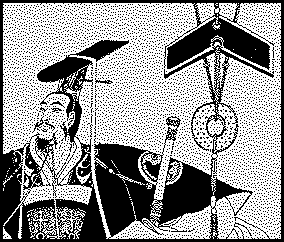
Lord Wen Gong of Jin (697-628 BC), a ruler of the state Jin, was from the southwest of what is present Shanxi Province. He had been in exile for 19 years before becoming the ruler of Jin and finally winning hegemony among the various states in the Spring and Autumn Period.
Misled by the calumny of a favourite concubine Ji Li, his father Lord Xian Gong of Jin forced the crown prince Shensheng to commit suicide and Chong’er to run away from the state. Lord Hui Gong who succeeded Lord Xian Gong after his death was far from a virtuous ruler who was then succeeded by his even worse son Lord Huai Gong. The important officials of Jin killed Huai Gong as they wished to have Chong’er back as their lord. Under the escort of the troops of the state Qin, Chong’er went back to the state Jin and became the ruler after 19 years in exile, known as Lord Wen Gong of Jin.
Not long after Wen Gong’s succession to the lordship, remnants of the former Lord Hui Gong plotted to kill him by burning the palace. A junior court official got to know the intrigue and reported it to Lord Wen Gong who then eliminated the hidden traitors and consolidated his rule.
Wen Gong did a lot in running the state, helping the poor and the needy, and promoting able and virtuous people. As a result the state of Jin soon became strong and prosperous. In the winter of 633BC, King Cheng Wang of Chu led the troops of three states to attack the state Song, that sent people to Jin to ask for emergency help. Xian Zhen, a senior general of Jin, said to the lord, ” Here comes the chance to get popular support and gain hegemony. ” Hu Yan, another important official said, “The states Cao and Wei are Chu’s allies. If we attack the two states, Chu is bound to send troops to their support and the state Song will be relieved from the siege.” Following their advice, Lord Wen Gong organized three armies (the Upper Army, the Medium Army, and the Lower Army) and sent troops against Cao and Wei the next spring. The people of Wei drove their lord who had thrown in his lot with Chu out of the capital. And the lord was captured by the Jin army.
General Zi Yu, chief commander of the Chu army, was determined to fight against the state Jin and led his troops towards the position of the Jin army. As Wen Gong had received favour from the king of Chu in his exile, he now gave an order to the whole army to retreat 90 li in spite of the objection of his generals. Seeing that, the Chu army marched closely after the Jin troops. In such a life-and-death situation, the Jin army, in alliance with the troops of Song, Qi and Qin fought against the allied forces of Chu, Chen, and Cai at Chengpu (present-day Fanxian County, Shandong Province), and gained a complete victory.
After that, Wen Gong of Jin was formally appointed chief of lords of all the states by the king of the Zhou Dynasty, realizing his ambition for hegemony. In the winter of the year, he sponsored a meeting of alliance among the lords at Jiantu (southwest of the present Yuanyang, Henan Province), and the king of the Zhou Dynasty was also invited to the grand occasion.
Lord Wen Gong of Jin died at the age of 69 in the winter of 628 BC.
King Zhuang Wang of Chu, Mi Lü
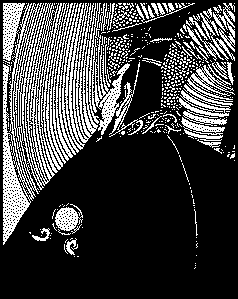
Mi Lü was from what is present-day Zigui of Hubei Province. He was a ruler of the state Chu known as Zhuang Wang, and was one of the five lords who won hegemony in the Spring and Autumn Period.
With the Zhou Dynasty becoming weaker and the powerful states contending for hegemony, King Zhuang Wang of Chu gave himself over to feasts and pleasure to the negligence of state affairs in the first three years of his reign, and was not brought around until after repeated remonstrations by his court officials. He removed mediocre officials, promoted able and virtuous people, and streamlined the administration. The political situation soon improved and the state of Chu became strong and prosperous. He sent troops against Jin and Song respectively and won complete victory.
In 606 BC, Zhuang Wang launched an expedition against the Rong tribes in Luhun (north of the present Songxian County, Henan Province). When arriving at Luoshui River, the king deployed his troops in the suburbs of Luoyang within the territory of the Zhou Dynasty for demonstration of strength. The king of the Zhou Dynasty Ding Wang sent Wangsun Man as envoy to the Chu army to express his good wishes, but the first thing Zhuang Wang asked was the weight of the nine tripods which were the symbol of sovereignty. Seeing his ambition to replace the Zhou Dynasty, Wangsun Man told him tactfully that what mattered in running a state was virtue instead of the tripods, whereas Zhuang Wang said contemptuously, “If we dismantle all the spearheads of our soldiers, they will be more than enough for casting nine tripods.” Thus he openly showed his disdain for the Zhou Dynasty.
In 598 BC, Zhuang Wang of Chuwiped out the state Chen, making it a county of Chu, on the pretext that an of ficial of Chen had killed its lord Ling Gong. Worrying that this might arouse the dissatisfaction and enmity of the other states, a senior official Shen Shu said to Zhuang Wang, “It is certainly wrong for a person to lead his cattle to trample others’ crops. However, isn’t it too heavy a punishment to confiscate his cattle just for that? Now it is quite all right for us to send troops against Chen since its official did wrong in killing his lord. But it smacks of rapacity if we make the state Chen a county of Chu. How can we convince the people of other states and make them obey our orders?” Zhuang Wang accepted the advice and restored the position of Chen as a state. In reality, Chen became a vassal of Chu after that.
A year later, Chu defeated the state Zheng, which threw the state Jin into a panic. However, the Jin army was hesitant in action as its generals failed to reach a consensus. As a result, the Jin troops were defeated by Chu. Someone advised Zhuang Wang to use the opportunity to pursue the Jin army for further attack. The king, however, replied, “We never dared to fight against Jin after our defeat at Chengpu. The present grand victory is enough to wipe out our humiliation. There is no point in killing more since both Chu and Jin are large states and will sooner or later come to terms.” So he gave an order to withdraw the forces and let the Jin troops go back to their state.
Two years later the Chu army besieged the capital of Song and finally forced Song to surrender.
In 591 BC, King Zhuang Wang of Chu died after reigning for 22 years during which he unified over 20 small states and won hegemony among the existing states at the time.
King of Wu, Helii
King of Yue, Goujian
Lord Wen Hou of Wei, Wei Si
King Huai Wang of Chu, Mi Huai
King Wuling Wang of Zhao, Zhao Yong
Lord Xiao Gong of Qin, Ying Quliang
Emperor Shi Huang of the Qin Dynasty, Ying Zheng
The Overlord of Western Chu, Xiang Yu
Emperor Gao Zu of the Western Han Dynasty, Liu Bang
Emperor Wen Di of the Western Han Dynasty, Liu Heng
Emperor Jing Di of the Western Han Dynasty, Liu Qi
Emperor Wu Di of the Western Han Dynasty, Liu Che
Emperor Ai Di of the Western Han Dynasty, Liu Xin
The Emperor of the Xin Dynasty, Wang Mang
Emperor Guang Wu of the Eastern Han Dynasty, Liu Xiu
Emperor Ling Di of the Eastern Han Dynasty, Liu Hong
Emperor Wu Di of Wei, Cao Cao
Emperor Zhaolie of Han, Liu Bei
The Great Emperor of Wu, Sun Quan
Emperor Wu Di of the Jin Dynasty, Sima Yan
Emperor Hui Di of the Tin Dynasty, Sima Zhong
Emperor Min Di of the Jin Dynasty, Sima Ye
Emperor Yuan Di of the Jin Dynasty, Sima Rui
King of the Kingdom of Han, Liu Yuan
King of Zhao, Shi Le
King of the Former Qin, Fu Jian
Emperor Wu Di of Song, Liu Yu
Emperor Gao Di of Qi, Xiao Daocheng
Emperor Wu Di of Liang, Xiao Yan
Emperor Wu Di of Chen, Chen Baxian
Emperor Dao Wu of the Northern Wei Dynasty, Tuoba Gui
Emperor Xiao Wen of the Northern Wei Dynasty, Tuoba Hong
Emperor Wen Xuan of the Northern Qi Dynasty, Gao Yang
Emperor Wu Di of the Northern Zhou Dynasty, Yuwen Yong
Emperor Wen Di of the Sui Dynasty, Yang Jian
Emperor Yang Di of the Sui Dynasty, Yang Guang
Emperor Gao Zu of the Tang Dynasty, Li Yuan
Emperor Tai Zong of the Tang Dynasty, Li Shimin
Empress Wu Zetian
Emperor Xuan Zong of the Tang Dynasty, Li Longji
Emperor Shun Zong of the Tang Dynasty, Li Song
Emperor Xian Zong of the Tang Dynasty, Li Chun
Emperor Wen Zong of the Tang Dynasty, Li Ang
Emperor Tai Zu of the Later Liang Dynasty, Zhu Wen
Ming Zong of the Later Tang Dynasty, Li Siyuan
Emperor Gao Zu of the Later Jin Dynasty, Shi Jingtang
Emperor Gao Zu of the Later Han Dynasty, Liu Zhiyuan
Emperor Shi Zong of the Later Zhou Dynasty, Chai Rong
The Last Ruler of the Southern Tang Dynasty, Li Yu
Emperor Tai Zu of the Liao Dynasty, Yelii Abaoji
Emperor Tai Zong of the Liao Dynasty, Yelii Deguang
Emperor Tai Zu of the Song Dynasty, Zhao Kuangyin
Emperor Zhen Zong of the Song Dynasty, Zhao Heng
Emperor Shen Zong of the Song Dynasty, Zhao Xu
Emperor Hui Zong of the Song Dynasty, Zhao Tie
Emperor Qin Zong of the Song Dynasty, Zhao Huan
Emperor Gao Zong of the Southern Song Dynasty, Zhao Gou
Emperor Jing Zong of the Western Xia Dynasty, Li Yuanhao
Emperor Tai Zu of the Jin Dynasty, Wanyan Aguda
Emperor Shi Zong of the Jin Dynasty, Wanyan Yong
Emperor Tai Zu of the Yuan Dynasty, Tiemuzhen
Emperor Shi Zu of the Yuan Dynasty, Kublai Khan
Emperor Tai Zu of the Ming Dynasty, Zhu Yuanzhang
Emperor Cheng Zu of the Ming Dynasty, Zhu Di
Emperor Ying Zong of the Ming Dynasty, Zhu Qizhen
Emperor Shi Zong of the Ming Dynasty, Zhu Houcong
Emperor Shen Zong of the Ming Dynasty, Zhu Yijun
Emperor Si Zong of the Ming Dynasty, Zhu Youjian
Emperor Tai Zu of the Qing Dynasty, Nurhachi
Emperor Tai Zong of the Qing Dynasty, Huangtaiji
Emperor Shi Zu of the Qing Dynasty, Fulin
Emperor Sheng Zu of the Qing Dynasty, Xuanye
Emperor Shi Zong of the Qing Dynasty, Yinzhen
Emperor Gao Zong of the Qing Dynasty, Hongli
Emperor Ren Zong of the Qing Dynasty, Aixinjueluo Yongyan
Emperor Xuan Zong of the Qing Dynasty, Minning
Emperor Wen Zong of the Qing Dynasty, Yizhu
Emperor De Zong of the Qing Dynasty, Zaitian
Empress Dowager Ci Xi, Yehenalashi
The Last Emperor of the Qing Dynasty, Puyi
Other data
This information has been recovered on Archive.org from the web: http://www.span.com.au:80/100emperors/index.html disappeared in the year 2002/3.
